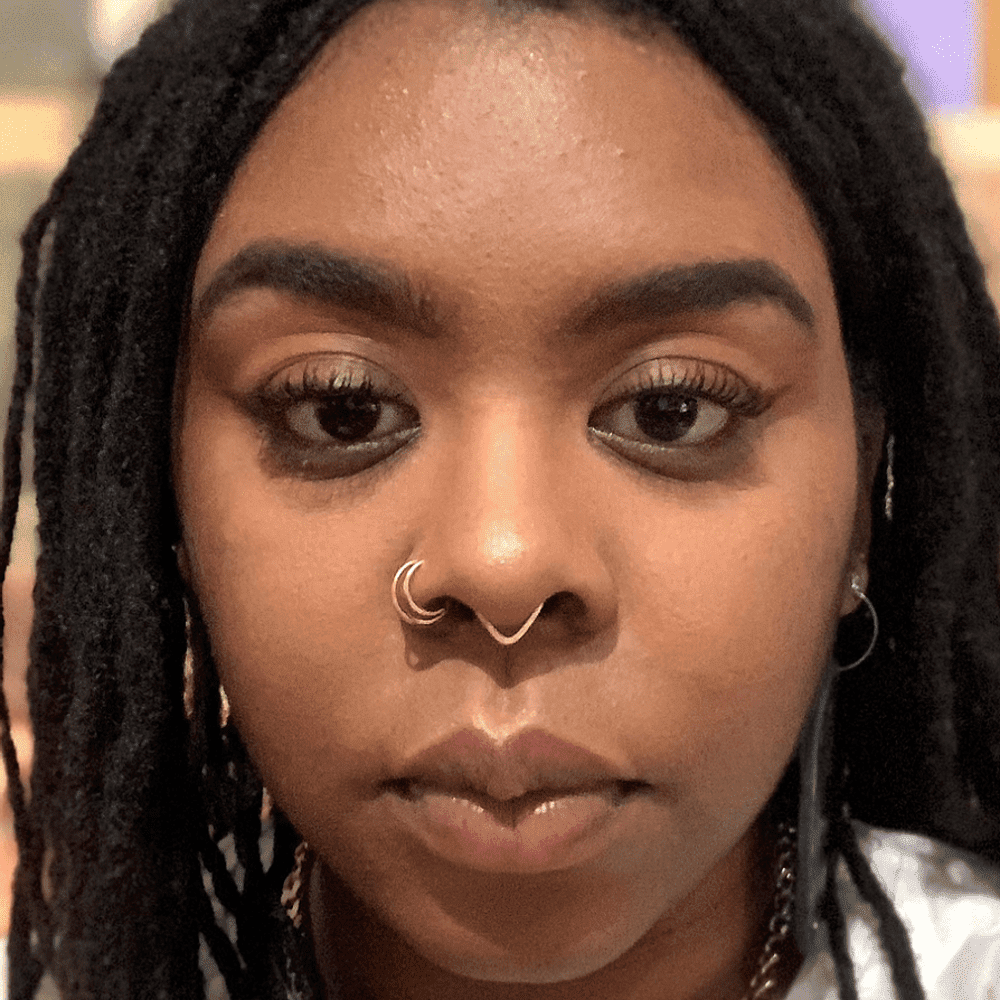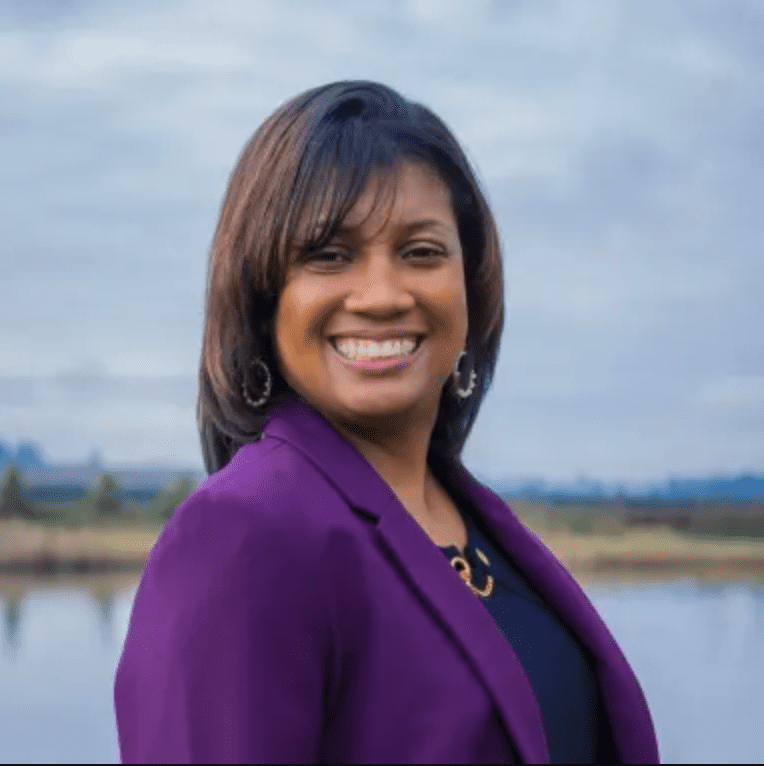A Black History Month Playlist: 17 Songs From the 1930s to Today
You can learn about Black History Month in class, in a book, or online, but what about from the voices of artists who shaped Black history themselves? As the originators of country, rock, jazz, funk, hip-hop, and more, Black people have told their stories — and told them their way — for decades across the various genres.
Kendrick Lamar and Beyoncé won big at the 2025 Grammy Awards, with Beyoncé taking home Album of the Year for “Cowboy Carter” and Lamar winning Song and Record of the Year for “Not Like Us.”
The BestColleges staff curated a small playlist celebrating Black History Month by highlighting several Black artists from the 1930s to the 2020s.
“Cross Road Blues” — Robert Johnson
Compared to the music we hear today, some may not consider Robert Johnson’s guitar riffs earth-shattering. But shatter the Earth they did back in 1937, when “Cross Road Blues” — commonly known simply as “Crossroads” — first reached ears in the Mississippi Delta, spinning pain into music like straw into gold. Johnson’s music was so transformative that rumors arose he’d met Satan at a “crossroads” and hocked his soul for those otherworldly talents.
This song only fueled the mystique. Johnson recorded songs for less than a year and died at age 27. But his body of work is a taproot of American music, heavily impacting blues, jazz, R&B, and, eventually, rock and hip-hop. Artists from Chuck Berry to Jimi Hendrix to Bob Dylan to Led Zeppelin have hailed Johnson as an influence. In 1986, Johnson joined the inaugural class of the Rock & Roll Hall of Fame. He recorded “Crossroads” nearly 90 years ago, but play it, and see if it can’t get you moving in your seat.
“Haterz” — Keith Frank (feat. Boosie)
“Haterz” is a classic, beloved example of Zydeco, a traditional style of music that originated in predominantly Black Creole communities across southwest Louisiana in the 1800s. Zydeco combines Afro-Caribbean, Cajun, and French music traditions. Accordions and rub boards, which resemble washboards worn across the chest, almost always lead the sound. Early Zydeco musicians sang in Louisiana Creole, playing the music at house parties and dancehalls to escape the hardships they experienced in rural Louisiana.
Because it includes influences from popular music styles like blues, Cajun, and gospel, Keith Frank’s “Haterz” is considered “new Zydeco.” It also features Baton Rouge rapper Boosie, who helped define Louisiana rap. Some Zydeco songs, including “Haterz,” even have accompanying line dances popularized by Black communities in Louisiana.
“Ameriican Requiem” — Beyoncé
Beyoncé’s first country album “Cowboy Carter” — the 2025 Grammy Awards’ Album of the Year — opens with “Ameriican Requiem,” a song calling out American societal racism. The opening line points to how the oppression of Black Americans has changed over time but remains no less systemic.
“Hello, my old friend/You change your name, but not the ways you play pretend/American Requiem/Them big ideas (Yeah), are buried here (Yeah)/Amen.”
Beyoncé also reflects on how racism has infiltrated country music, even though Black artists founded and influenced the genre. Despite being from the South — Houston, specifically — Beyoncé was criticized for not being country enough and “did not feel welcomed” into the country music genre.
“Reincarnated” — Kendrick Lamar
Grammy- and Pulitzer Prize-winning rapper Kendrick Lamar tells the story of his past lives, reincarnation, and his connection to Black artists of the past. People speculate that the first verse describes the life of either blues singer/guitarist John Lee Hooker or soul singer Jackie Wilson. Lamar details someone who “manipulated power as I lied to the masses / died with my money, gluttony was too attractive …”
The second verse explores a life of addiction and vocalization thought to be about jazz vocalists Dinah Washington or Billie Holiday. His third verse highlights his spirit’s final life as Kendrick Lamar, seeking to redeem the spirit as he talks to God, wondering who he really is. In the end, God tells him he’s Lucifer, and Lamar “rewrites the devil’s story,” trying to break the cycle of self-destruction.
“Duckworth.” — Kendrick Lamar
In the first non-classical or jazz album to win a Pulitzer Prize, Lamar closes the “Damn.” album by sharing the story of two men, a KFC worker named Ducky and a “small-time hustler” named Anthony. Anthony planned to rob the KFC and possibly kill Ducky, who was working at the counter. But every time Anthony came by, Ducky gave him some extra food, dissuading him.
Twenty years pass, and the two meet again at a recording studio. Lamar reveals that Anthony is Anthony Tiffith, Top Dawg Entertainment CEO, and Ducky is Lamar’s father. Lamar explores the consequences of two strangers and asks the audience who would’ve thought the greatest rapper would be from coincidence?
“Because if Anthony killed Ducky, Top Dawg could be servin’ life while I grew up without a father and die in a gunfight.”
“Neighbors” — J. Cole
In “Neighbors,” North Carolina native Jermaine “J.” Cole laments and highlights the stereotypes and fears that members of the Black community face every day, with the chorus repeating that “the neighbors think I’m selling dope.”
In April 2016, Cole met with then-President Barack Obama alongside other hip-hop artists to discuss a criminal justice reform and mentorship initiative, which Cole references in a line from “Neighbors,” which was released later that year.
“Yeah, I don’t want no picture with the president, I just wanna talk to the man. Speak for the boys in the bando …”
“Get Up, Stand Up” – Bob Marley and the Wailers
The anecdotal history of “Get Up, Stand Up,” released by singer-songwriter Bob Marley and his band in 1973, is the story of Marley’s trip to Haiti. He saw the country’s inhabitants in extreme poverty brought on by the Duvalier dynasty, which was characterized by inequity. Marley returned home to write a song about speaking in protest. Referencing odes to Marley’s Rastafarian faith and to government corruption, “Get Up, Stand Up” uses its lyrics to incite revolution.
Pointing out the measures taken to oppress a community, Marley declares: “You can fool some people sometimes, but you can’t fool all the people all the time.”
“Strange Fruit” – Billie Holiday
Initially written as a poem by Jewish teacher Abel Meeropol, “Strange Fruit” reflects Meeropol’sdisgust with the lynching of Black people in the Southern United States. After reading the poem, Holiday decided to perform it — despite the extreme backlash she feared she would (and did) receive. Holiday and her performance of “Strange Fruit” were highly controversial. The song was banned from the radio and Holiday became a target of the FBI. The government attempted to silence Holiday and the Black protest anthem that is “Strange Fruit.”
The lyrics describe a lynching in brutal and vivid detail: “Black bodies swingin’ in the Southern breeze, strange fruit hangin’ from the poplar trees.”
“Zombie” – Fela Kuti
Fela Kuti was a Nigerian musician, well-known as the father of Afrobeat. Aside from being a musical pioneer, he was a Pan-Africanist and political activist. Kuti used his songs as vehicles for political expression and as platforms for the advocacy of Nigerian people. His song “Zombie,” written during the Nigerian Civil War, was a commentary on the Nigerian state’s militaristic rule. The song sparked outrage, and, in 1977, soldiers were sent to burn down Kuti’s commune, Kalakuta Republic.
The song’s lyrics speak to Kuti’s feelings about the Nigerian military, characterizing their behaviors as mindless and destructive: “Fall in (zombie), fall out, fall down (zombie), get ready.”
“What’s Going On” – Marvin Gaye
Released at the tail end of the civil rights movement and at the height of the Vietnam War, “What’s Going On” illustrates a chaotic United States. The song outlines multiple experiences, including a soldier’s return from Vietnam. “What’s Going On” acknowledges and critiques America’s failure to support its people.
Gaye’s lyrics emphasize the universality of protest against discrimination and the inequity Black people face: “Picket lines and picket signs, don’t punish me with brutality … Oh, what’s going on?”
“The Charade” – D’Angelo and the Vanguard
After a 14-year hiatus, singer-songwriter D’Angelo returned with the album “Black Messiah.” The album features “The Charade,” a song about politics, protest, and power. In a 2015 interview with The New York Times, D’Angelo and former Black Panther Party member Bobby Seale pointed out the song’s relevance to current social justice movements. They argued for the necessity of Black activism and warned against the negative attitudes toward young revolutionaries. “The Charade” acts as both a record of history and an anthem for those who want social change.
The lyrics directly comment on systemic oppression and the necessity of Black protest in America: “Crawling through a systematic maze … Degradation so loud that you can’t hear the sound of our cries.”
“Mississippi Goddam” – Nina Simone
Written in the wake of activist Medgar Evers’ murder, “Mississippi Goddam” encompasses Nina Simone’s frustrations with the American South. Within the lyrics, Simone claims the tune as her first civil rights song and recounts images of demonstrations and injustice. Her rage against incidents like the bombing of the 16th Street Baptist Church in Alabama, where four young Black girls died, is palpable in the song’s intense lyrics.
In “Mississippi Goddam,” Simone highlights the tensions of the 1960s: “Oh, but this whole country is full of lies. You’re all gonna die and die like flies.”
“Lift Every Voice and Sing” – Performed by The Boys Choir of Harlem
Known as the Black National Anthem, “Lift Every Voice and Sing” was written by NAACP leader James Weldon Johnson. On Abraham Lincoln’s birthday in 1900, the piece was translated to music by John Rosamond Johnson and performed by 500 children at the Stanton School in Florida. After the performance, the song traveled through the American South, where it grew in popularity and became a staple of the Black songbook.
The song’s connection to the early origins of Black civil rights is apparent in its lyrics: “Sing a song full of the faith that the dark past has taught us. Sing a song full of the hope that the present has brought us.”
“Freedom” – Beyoncé
Released in 2016, Beyoncé’s famed album “Lemonade,” which focuses on the strength of Black women, features the song “Freedom.” In the song, Beyoncé pulls imagery from American slavery, the civil rights era, and 21st century social justice movements to illustrate themes of anger and redemption. Freedom’s video includes a cameo of the mothers of Trayvon Martin, Michael Brown, and Eric Garner — all Black men killed due to racist discrimination — as a testament to Black women’s power and permanence in social justice movements.
Refusing to let the work toward justice go to waste, Beyoncé claims: “I’ma keep running, ’cause a winner don’t quit on themselves.”
“Say It Loud — I’m Black and I’m Proud” – James Brown
Known for his activism through song, James Brown wrote “Say It Loud — I’m Black and I’m Proud” in 1968 during the civil rights movement. The song, a declaration of Black pride, was perceived as angry and militant, leading to the loss of Brown’s crossover audience. After its release, “Say It Loud — I’m Black and I’m Proud” was used as the soundtrack to protests for civil rights. To this day, it is celebrated as a Black anthem and a symbol of Black pride.
Brown conveys the spirit of self-preservation in his lyrics, stating: “But we’d rather die on our feet than keep living on our knees.”

“Glory” – Common and John Legend
Written for the historical film “Selma,” a depiction of Dr. Martin Luther King Jr.’s march from Selma to Montgomery, “Glory” expresses the emotions and experiences of Black Americans from the civil rights era to today. The song recounts historical injustices and compares them to modern social movements, bridging the past and present with references to activist Rosa Parks and the 2014 protests for Michael Brown in Ferguson, Missouri. “Glory” not only honors those who fought against injustice in the past, but also those who fight against it now.
The lyrics communicate that unity is one of the best methods used to overcome hard times: “Now we right the wrongs in history. No one can win the war individually.”
“Fast Car” — Tracy Chapman
Tracy Chapman, then a little-known artist, stepped onto the stage in June 1988 to fill in for R&B legend Stevie Wonder, who was suddenly unable to perform due to an equipment issue, at the Nelson Mandela 70th Birthday Tribute concert. There, she dazzled a worldwide audience of over 60 million with “Fast Car,” a folk ballad she wrote highlighting the struggle to escape poverty in the U.S. and how this struggle can transcend generations. The song, released in the final year of President Ronald Reagan’s administration, is seen as a critique of the president’s portrayal of poor Americans and the stereotypes attached to people dealing with poverty.
Decades later, country artist Luke Combs released a cover of Chapman’s song. With the renewed popularity and recognition, “Fast Car” earned Song of the Year honors — 35 years after its original release — at the 2023 Country Music Association Awards. Chapman was the first Black songwriter to receive the award.
More Black Artists Who Shaped Their Generations
Here are more Black artists who shaped music genres throughout the decades:
- Muddy Waters (1913-1983)
- Sister Rosetta Tharpe (1915-1973)
- Chuck Berry (1926-2017)
- Odetta (1930-2008)
- Jimi Hendrix (1942-1970)
- Alice Coltrane (1937-2007)
- Bad Brains (pioneers of hardcore punk)
- Tina Turner (1939-2023)
- Poly Styrene (1957-2011), lead singer of X-Ray Spex and the first Black woman to front a successful punk band
- Prince (1958-2016)
- Living Colour (broke through the dominance of white musicians in hard rock)
- Tina Bell “Queen of Grunge” (1957-2012), lead singer of Bam Bam
Explore More College Resources

Top Black Podcasts to Listen to During Black History Month
Growing in popularity, podcasts can shed light on the Black experience. Here are 10 Black podcasts for students to learn about Black history and culture.

by Sydney Clark
Updated December 26, 2023

Scholarships for Black and African American Students
Black and African American scholarships and grants can help students further their careers while minimizing their college debt. Explore scholarship options.

by Elin Johnson
Updated August 23, 2024

